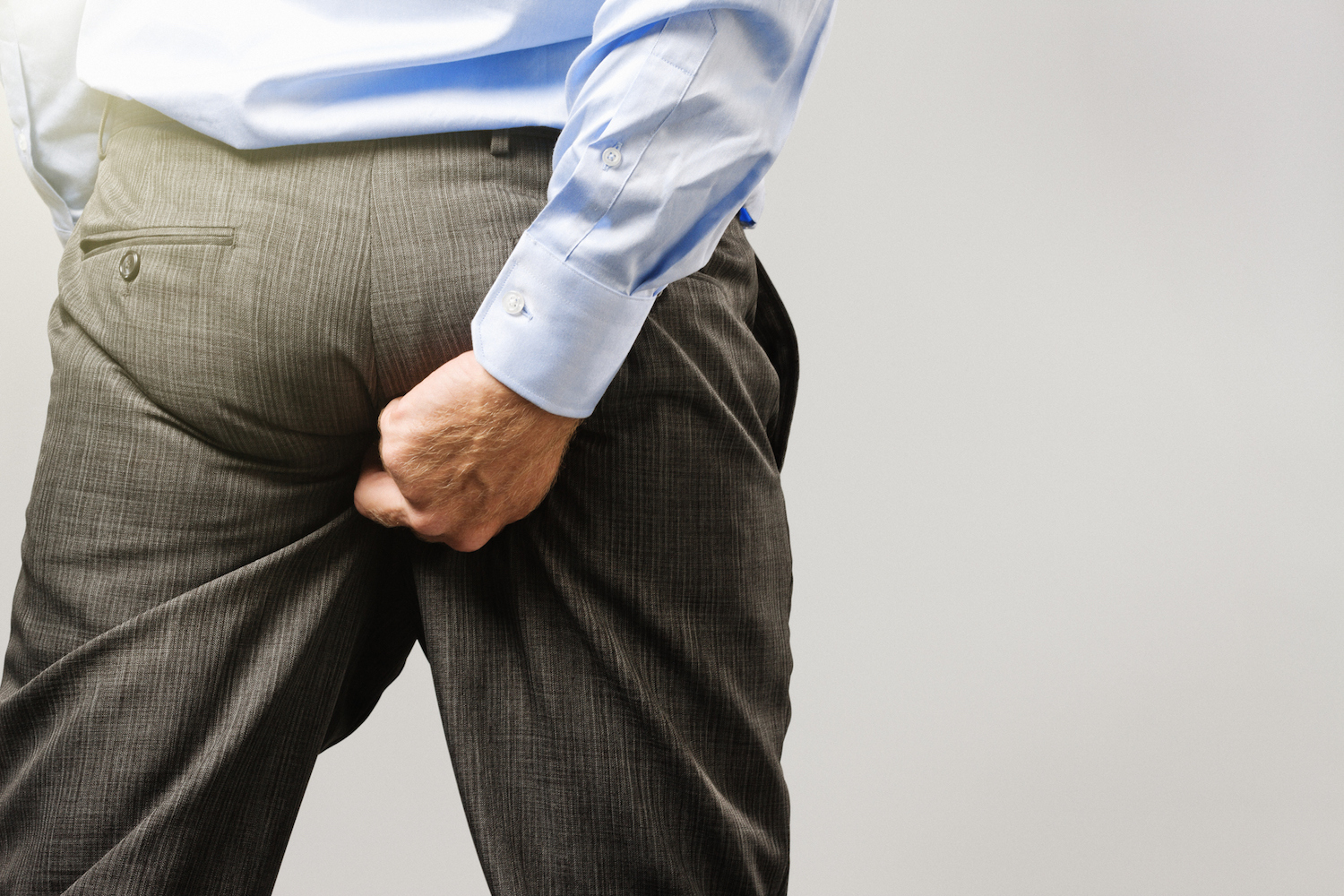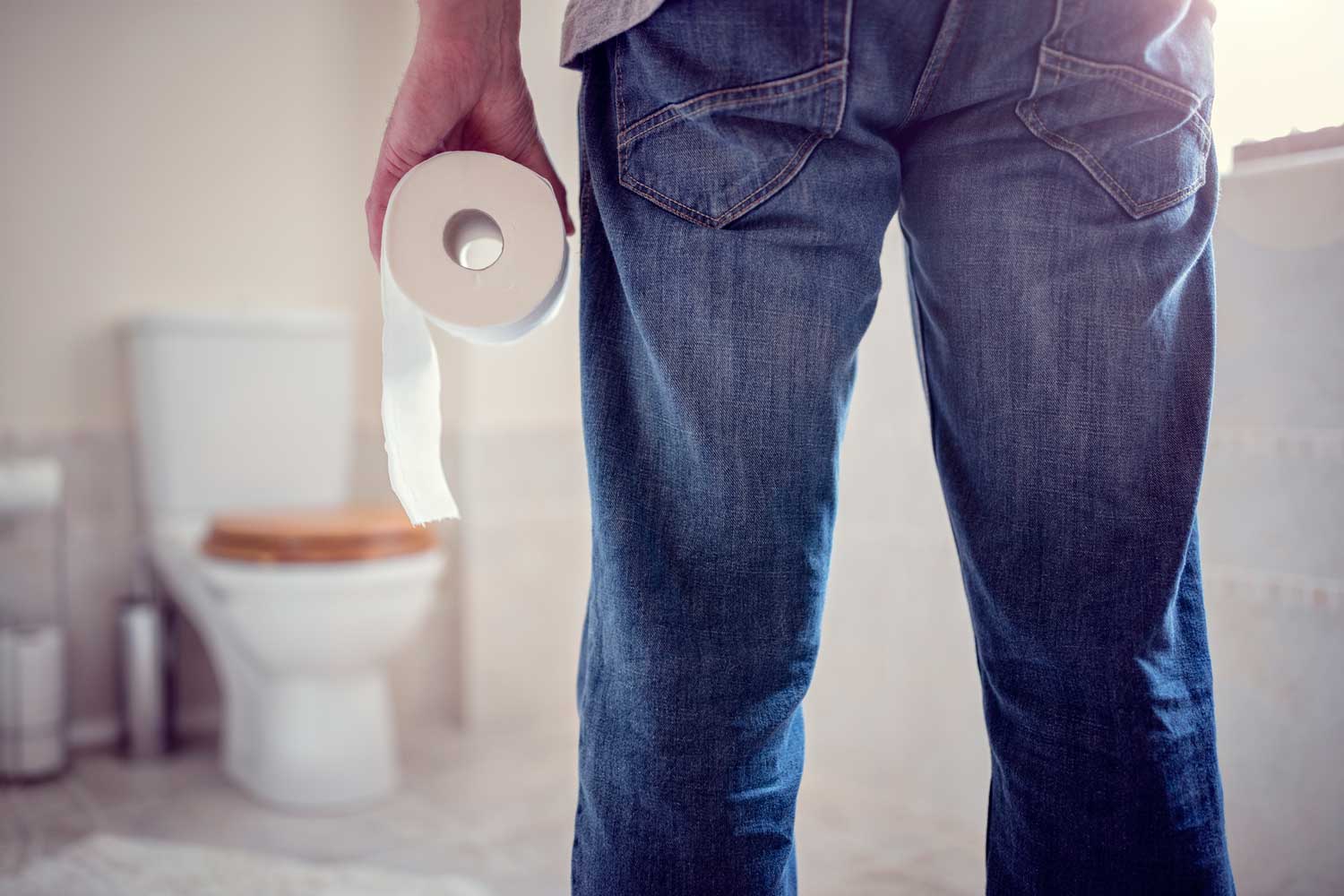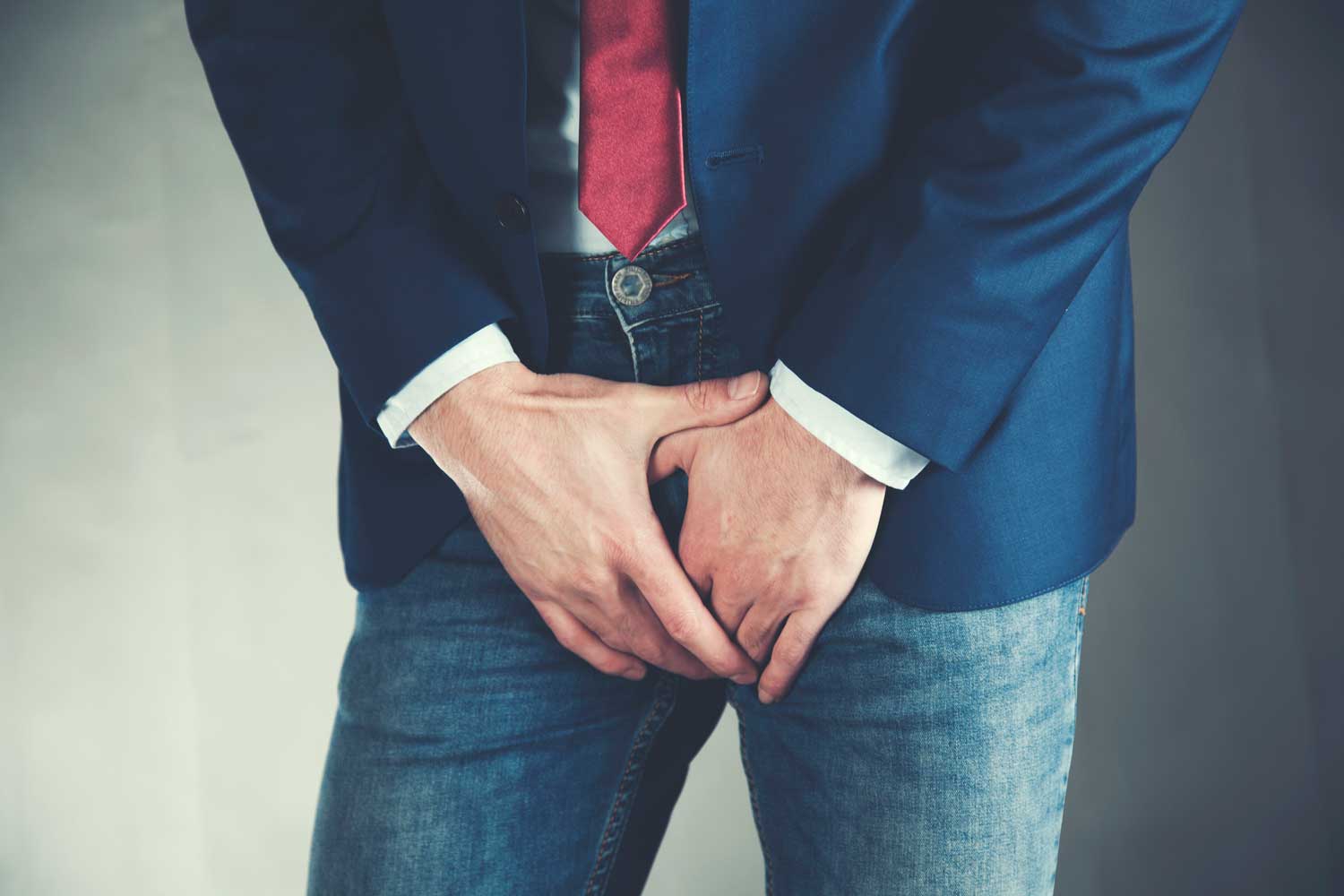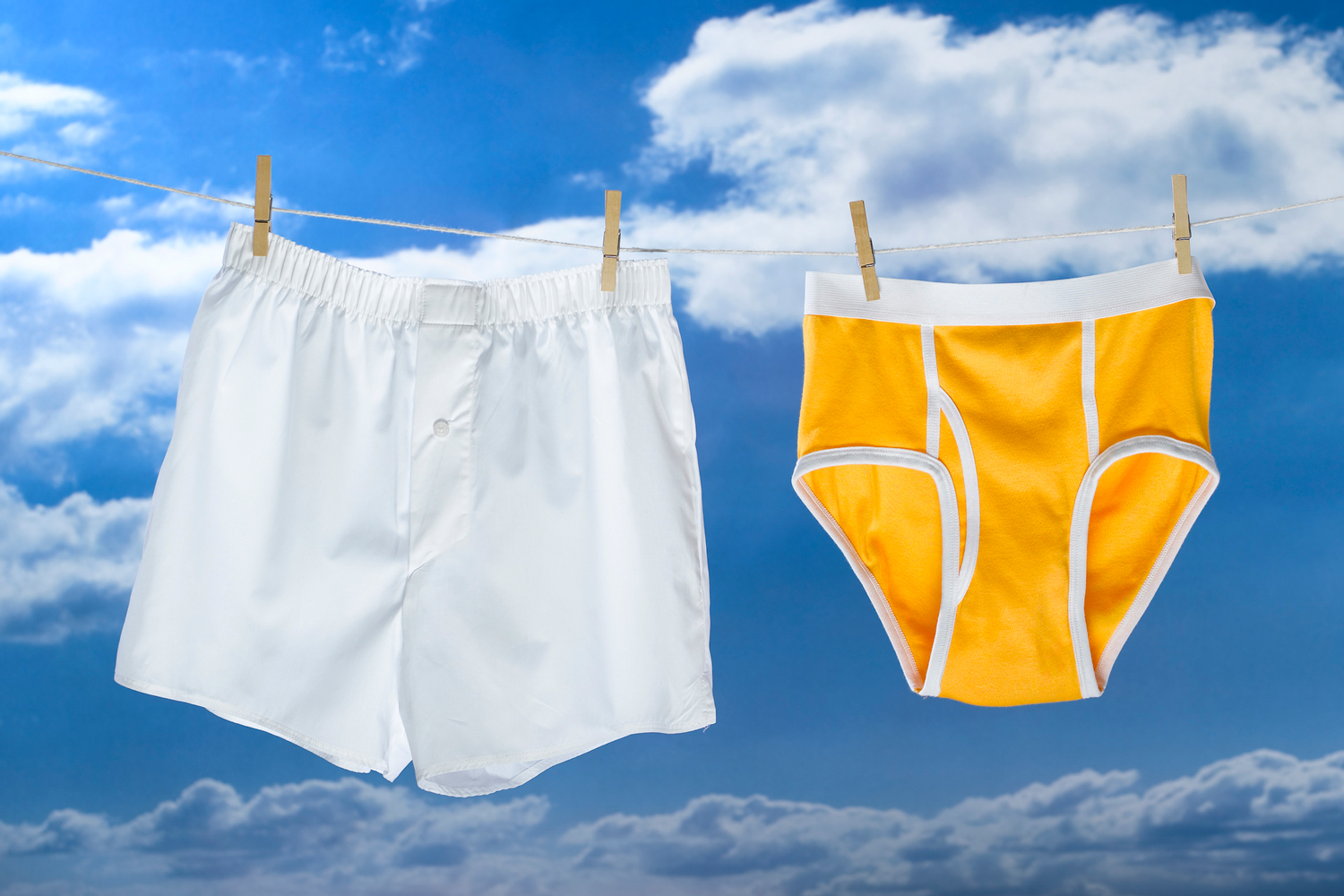
When that itch in the seat of your pants strikes, there’s nothing you want to do more than give it a good scratch. But not only is that not the way to go about it, it’s also not the best way to endear yourself to polite company.
“Anal itching is quite common, and for some people, it can feel incredibly frustrating,” says Mitchell Bernstein, M.D., an associate professor of surgery and director in the division of colon & rectal surgery at NYU Langone Health. “Some people even start scratching in their sleep, and of course, too much scratching just makes it worse.”
The ailment is known as pruritus ani, meaning “itchy anus” in Latin. (Talk about a straightforward translation.) Some people have “primary” pruritus ani, which means their anus is itchy for no apparent underlying reason. Others have “secondary” pruritus ani, which means the itch comes from an anorectal condition like haemorrhoids, anal fissures, bacterial infections, and more.
If you find yourself dealing with that type of unwelcome wake-up call, here are some possibilities for what might be driving that itch — and what you can do to soothe your seat.
1. You’re not wiping enough
Slacking on your hygiene can irritate the skin and cause itching due to flecks of fecal matter remaining on your anus. Maybe you’re not wiping enough after you use the toilet. Or maybe — as WebMD points out — you’re consuming too much coffee, which relaxes the anal muscles and may cause poop to leak out.
If there’s poop hanging around in your crack, get in the shower and wash your butt. Don’t just stand there and let the water run between your cheeks: Use soap — but not the same bar you use on your face and body — and a hand-held shower head, if you have one.
Dr. Joel Krachman, MD, Chief of Gastroenterology for New Jersey-based AtlantiCare Regional Medical Centre, previously told MensHealth.com that guys should look for soaps labeled “sensitive” or “gentle” when it comes to cleaning below the waist.
2. You’re wiping too much
Get this: You can also get an itchy anus if you wipe too aggressively.
The skin around the anus is tender and sensitive. It’s prone to damage if you wipe too hard with dry toilet paper — which can lead to anal itching, according to the International Foundation for Functional Gastrointestinal Disorders. “Moreover, some toilet papers are rough, and others are easily crumbled,” the foundation points out. “Tiny bits of paper trapped in the anal skin can be irritating.”
If you think you may be going a little too hard with the toilet paper, you may want to consider alternative ways to clean yourself — like a bidet, if you’ve got one. If not, try cleaning yourself in the shower instead of plowing through a whole roll of TP. Flushable wipes seem like an easy solution, but the chemicals in them can irritate some people, making the problem worse, some doctors say.
3. STDs
Another potential cause of anal itching is from sexually transmitted infections, particularly herpes, gonorrhoea, and chlamydia, according to Ehsan Ali, M.D., primary care physician in Beverly Hills, Calif.
These STDs are fairly common, especially in people who engage in anal sex without condoms, Ali says.
When they occur, they cause inflammation in the rectal area, and that can prompt itching. With herpes or HPV, warts may also appear, a further cause of itching and burning. Any of these STDs may also prompt a rash, discharge, or penile and testicular pain.
If you suspect STDs might be the culprit, see your doctor — treatment can usually clear up the symptoms and stop the itch.
4. Eczema
Sometimes, the compulsion to scratch down below can come from eczema, a skin condition characterised by a red, scaly rash that can itch persistently.
The exact cause of eczema is unknown, but it has been linked to an overactive response by the immune system, and can be triggered by allergies or asthma, Alan Parks, M.D., dermatologist and founder of DermWarehouse. The condition can also crop up with external factors like changes in weather or exposure to household products like soap or detergent.
Stress can also be a factor, and can also cause the problem to worsen. When you get tense, your body issues a protective response by increasing inflammation. That can cause a flare-up of itching wherever you have eczema — including down there.
Parks notes that the problem is usually treated with topical steroid creams, which tend to take care of the itching fairly rapidly because they lower inflammation — unlike other medicated creams that may increase it and make itching worse.
5. Fungal infections
That’s right — the one place where you would least like to have fungus is where you can get a bunch of it.
Actually, we all have fungus living on our skin, says Parks, but where they thrive the most is in warm, moist, airless areas. Like in your underwear.
The body is usually adept at fighting off the invaders, but if you’ve been sick lately, overstressed, or get particularly sweaty down there, the fungus may linger. You may have an area of redness and inflammation around the anus, similar to eczema.
In that case, your doctor will likely treat you with a topical or oral anti-fungal medicine.
6. Your laundry detergent
If there’s an itchy rash on your behind, it could be from the laundry detergent you used to wash your underwear. The irritating chemicals found in laundry detergent can lead to contact dermatitis, a skin condition that causes a red rash and mild to severe itching, according to Healthline. The reaction may be more severe in spots where your clothing gets damp with sweat — such your groin.
You can prevent contact dermatitis by switching to a fragrance- or dye-free detergent.
7. No-breathe clothing
If sweat can’t get out, you can end up with swamp butt (aka “swamp ass”). When sweat accumulates, moisture-loving bacteria and fungus breed there (see fungus, above). Lots of manufacturers feel your pain (and itching); many workout clothes brands and even standard clothing brands make underwear options that wick sweat away from your butt, starving out those itch-producing germs.
8. Haemorrhoids
By the time we hit age 50, about half the population of the US will experience symptoms of haemorrhoids, and itching is one of them (others include pain and bleeding). Haemorrhoids are basically bulgy blood vessels either inside the lower rectum or right outside the anus (known to doctors as “external haemorrhoids,” known to you as the ones that generally bother you more).
They’re linked to chronic constipation and long bouts of sitting on the toilet, which can allow blood to pool in vessels there and cause the ballooning. So fiber, of course, is one solution to taming the problem that can cause the itch . Another classic for finding relief is sitting in a warm bath for ten to 15 minutes, though doctors recommend it three times a day, especially right after a bowel movement (which has the potential to be pretty inconvenient).
But docs also say that people incorrectly diagnose their haemorrhoids all the time and use OTC products to no avail. A better plan: If you have itching and bleeding, see a physician quickly.
What Should You Do About Anal Itching?
No matter what the issue, if it continues for longer than a couple of weeks and your tweaks to hygiene and diet aren’t working, see a doctor.
There is also a chance that the itching can be much more serious, such as a symptom of anal cancer. But Bernstein says the risk of that is incredibly low — mainly, because if it was cancer, you’d be much more likely to have bleeding rather than just itching.
This article originally appeared on Men’s Health

















